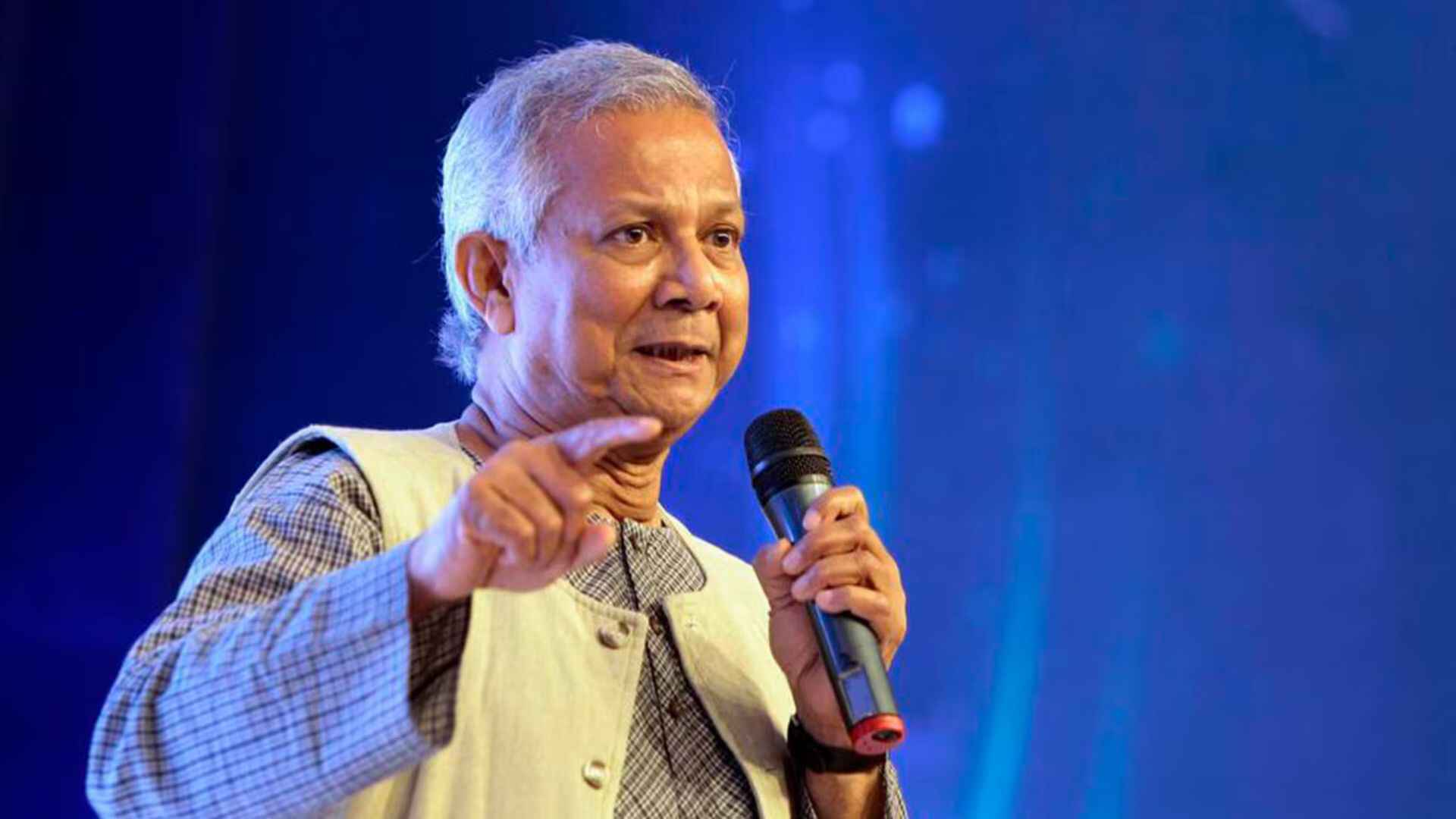Bangladesh’s Nobel laureate Muhammad Yunus will lead the interim government following the resignation and departure of former Prime Minister Sheikh Hasina, who fled amid widespread protests primarily driven by students.
The announcement was made early Wednesday by Joynal Abedin, the press secretary to President Mohammed Shahabuddin.
Abedin also mentioned that the remaining members of the Yunus-led government would be appointed shortly after consultations with political parties and other stakeholders.
Late on Tuesday, leaders of the student protests, the heads of Bangladesh’s three military divisions, civil society representatives, and some business leaders met with the president for over five hours to discuss the leadership of the interim administration.
The students had previously recommended Yunus for the role, and the 83-year-old microfinance pioneer reportedly accepted the offer. According to local media, Yunus is expected to return from Paris soon.
After the decision was made, student leaders left the president’s official residence shortly after midnight, expressing satisfaction and approval. Nahid Islam, a leader of the student group, described the talks as “fruitful” and noted that President Shahabuddin had committed to forming the interim government “will be formed within the shortest time” possible.
Shahabuddin also dismissed the national police chief following the deadly protests that led to Hasina’s departure and appointed a new replacement, according to his office.
Longtime Hasina critic
Yunus is a prominent critic and political adversary of Hasina, referring to her resignation as the country’s “second liberation day.” Hasina had previously labeled him a “bloodsucker.”
An economist and banker, Yunus received the Nobel Peace Prize in 2006 for his pioneering work in microcredit, aimed at assisting impoverished individuals, especially women.
The Nobel Peace Prize committee recognized Yunus and his Grameen Bank “for their efforts to create economic and social development from below.”
Yunus established Grameen Bank in 1983 to offer small loans to entrepreneurs who typically wouldn’t qualify for traditional financing. The bank’s success in alleviating poverty inspired similar microfinancing initiatives worldwide.
He encountered conflict with Hasina in 2008 when her administration began investigating him. Yunus had announced plans to form a political party in 2007 during a military-backed government period but did not follow through.
During the investigations, Hasina accused Yunus of using coercive methods to recover loans from poor rural women as head of Grameen Bank. Yunus denied these allegations.
In 2013, Yunus faced trial for allegedly receiving money without government approval, including his Nobel Prize funds and book royalties. Additional charges later involved other ventures he founded, such as Grameen Telecom, which is part of Grameenphone, a subsidiary of Norwegian telecom giant Telenor.
Also Read: NCP Leader Clyde Crasto Urges Govt To Safely Bring Back Indian Students From Bangladesh
In 2023, former Grameen Telecom employees filed a lawsuit against Yunus, accusing him of misappropriating their job benefits, which he denied.
Earlier this year, a special judge’s court in Bangladesh indicted Yunus and 13 others in a $2 million embezzlement case. Yunus has pleaded not guilty and remains out on bail. His supporters argue that the charges are a result of his strained relationship with Hasina.























